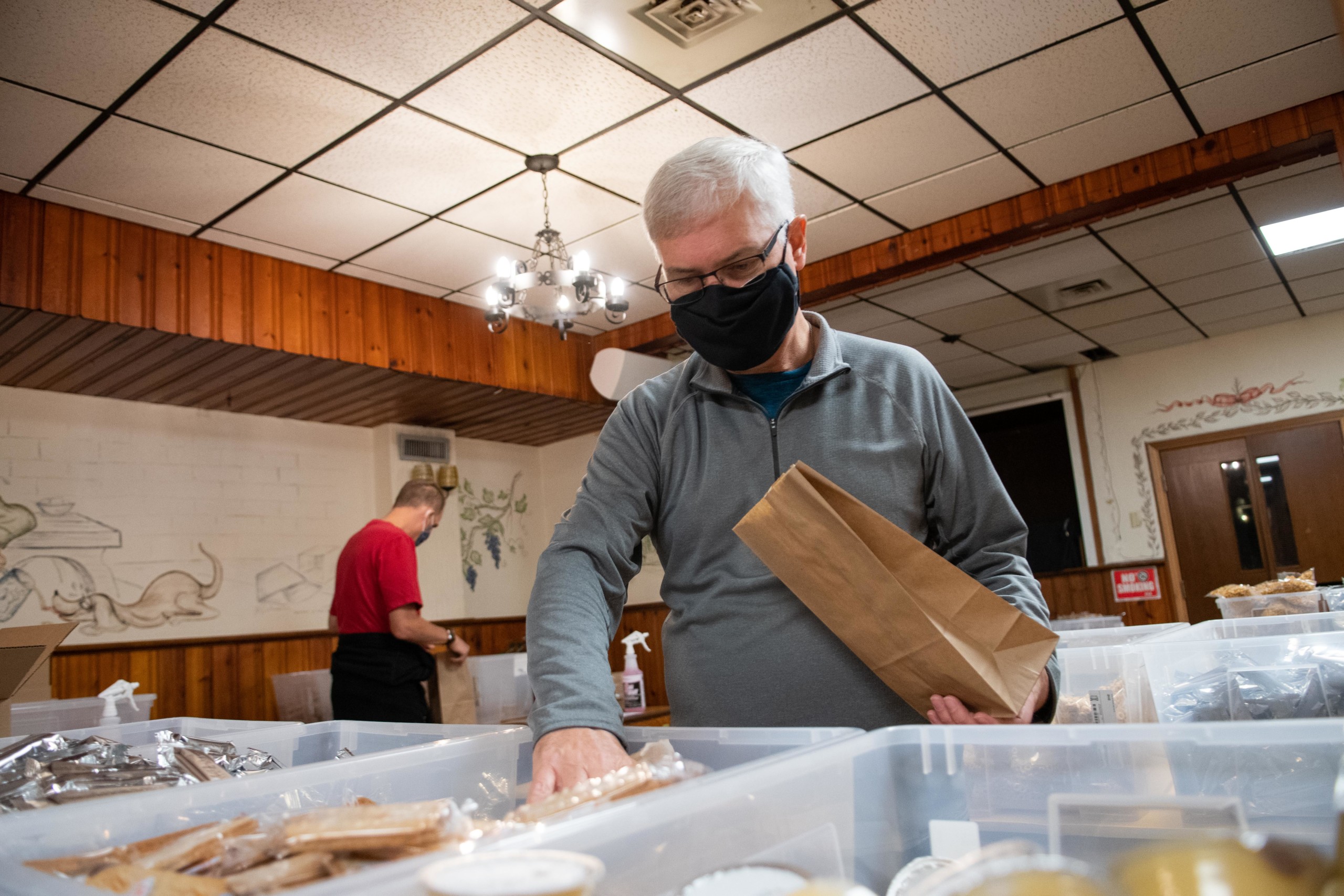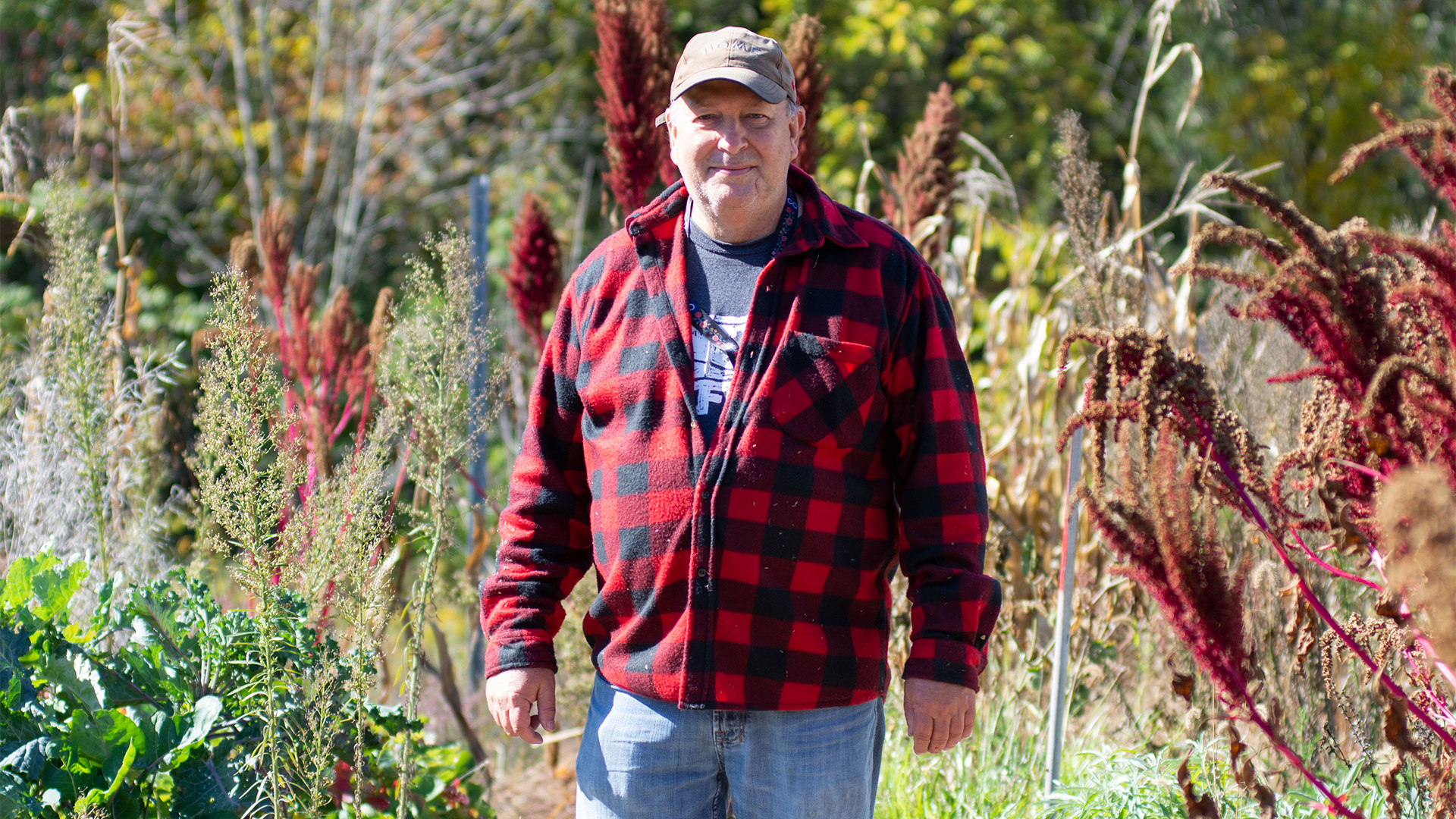
Feeding Students in the Time of COVID-19
Helping hands were busy across Waterloo Region as volunteers with Nutrition for Learning prepared food packages for delivery to schools throughout the region. The charity has rapidly reimagined its operations at least twice in response to COVID-19. In March 2020, they reacted to emergency school closures by offering pop-up service at schools throughout the region, and as students returned to in-person learning, they adapted again by providing in-school nutrition with pre-bagged non-perishable options.
Brian Banks heads up Community and Partnership Development at Nutrition for Learning and explained that “it’s work to be able to serve,” but that the results are worth the effort. Shifting their operations to produce and package nutritional offerings centrally was challenging, but addressing the needs of students is the ultimate motivator. There was never really any question of if they would continue.
“Those who would normally rely on the programs are still there,” said Banks. “This is something that has to happen.”
Like school itself, the items students received looked a bit different this year. On this day at the Nutrition for Learning Volunteer Bagging Station at the Schwaben Club in Kitchener, volunteers were combining individually sealed bags of cereal, granola bars, crackers and applesauce. Crucially, these items are carefully selected to maintain strict nutritional guidelines, such as limitations on sugar content. They are also non-perishable which means they can be on-hand at schools to be used as needed. Banks explained they are planning on providing more dairy, fruit and vegetable options, but the logistics of doing so given COVID-19 protocols is more challenging.
“We are all moving forward in a positive way,” said Banks. “We’re going to work through this; we’ll make it together.”
None of this would be possible without the generous support of volunteers, explained Tania Moser, who leads Program Support and Development at Nutrition for Learning. Volunteers have always played a critical role in the delivery of service for Nutrition for Learning and this is one thing that has not changed. Volunteers are responsible for packaging the food into individual bags, and as such, new guidelines have been put in place to help mitigate the risks associated with COVID-19.
When volunteers arrive each day, Moser explained, they are required to fill out a screening questionnaire, and have their temperature taken with a contactless thermometer. If they answer yes to any of the questions, or if their temperature is over a certain threshold, they are asked to visit their family physician before returning.
Volunteers wear masks and work at their own stations, more than two metres from their fellow volunteers. Hand sanitizer is plentiful and all of the packaged food is loaded into brand-new or reusable containers that can be cleaned and sanitized.
Ross Robertson is one of those volunteers. He first got involved as an Optimist Club member.
“The goal of ensuring kids have food so they can concentrate on learning instead of being distracted by their rumbling stomachs,” is what motivates Robertson.
He encourages anyone interested to take the first step to supporting Nutrition for Learning.
“There’s no better time, so get involved,” said Robertson. “Nutrition for Learning is just such a great organization and they do so much” for students and the community.
Each year, Nutrition for Learning provides universal access to nutrition programs in 99 Waterloo Region District School Board (WRDSB) schools, explained Bill Lemon, Superintendent of Student Achievement and Well-being.
“The service they provide to our students and their families is instrumental in addressing food insecurity for our students and their families,” said Lemon.
The necessity of student nutrition programs has only increased as a result of the COVID-19 pandemic, he added. Ensuring WRDSB students can access nutritious food during the school day, given the added restrictions of new health and safety protocols, is especially important.
The Waterloo Education Foundation Inc. (WEFI) helped to illustrate the important role Nutrition for Learning and other student nutrition organizations play with a $50,000 donation in April and an additional $30,000 in November.
Matthew Gerard, treasurer and secretary of WEFI, explained that this decision was an easy one, given the pandemic-related challenges faced by members of WRDSB school communities.
“Food insecurity is experienced by many families in Waterloo Region, and this issue has only been magnified by the COVID-19 pandemic,” said Gerard. “It’s our hope that our donations, as well as our continued support of nutrition programs, provides students and families with a measure of relief during a challenging time.”
Nutrition for Learning isn’t alone in their efforts to feed students. May Court Club of Kitchener-Waterloo’s Food Box Program provides a similar service to support student nutrition needs. Gaye Karges, Food Box Convenor, explained that they too have noticed an increased need. In the first two weeks of September alone they delivered 40 boxes to 26 schools, which marks a significant increase.
“There are many families who are struggling,” said Karges. “We are very happy to be able to help with that.”
Their operations have also adapted to COVID-19 health and safety requirements. Each one of the 15 volunteers dons a mask and sanitizes their hands before packaging or delivering the food. Deliveries are completed by drop-off to help ensure safe physical distancing, Karges explained.
The work of supporting students in their well-being and learning is at the heart of the goal of May Court Clubs across Ontario. First established in 1898 by Lady Aberdeen, Karges explained, these social clubs are focused on the importance of women’s role in society and the positive difference they can make for their community.
“The purpose of the Club is to assist individuals in the community with financial, educational and emotional support,” said Karges. “So the Food Box Program aligns perfectly.”
For Moser, the work of supporting student nutrition is personal and she knows, first-hand, the difference their efforts make in the lives of students and their families.
“As a mom, for me, knowing that food is accessible to my children is huge,” she said.
When asked how people can best support programs like Nutrition for Learning, Moser’s answer was to the point.
“We need volunteers, and we need money. It’s that simple.”
How you can help
Nutrition for Learning
The May Court Club of Kitchener-Waterloo
Waterloo Education Foundation Inc. (WEFI)



